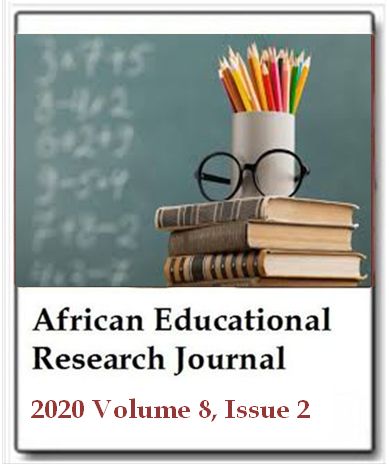The effects of relative age on selected biomotoric skills in puberty period
Atar ÖzdemirAfrican Educational Research Journal
Published: June 26 2020
Volume 8, Issue 2
Pages 392-397
DOI: https://doi.org/10.30918/AERJ.82.20.074
Abstract
The purpose of this study was to investigate the effect of relative age on selected biomotoric skills of children in puberty period. The sample of this research consisted of 30 male and 30 female students who have been studying at primary schools and on 9 age period. Identity info was grounded on determining chronologic ages of participants. In this research, different test protocols had been applied to determine performances related to biomotoric skills of students. Sit and reach test to determine flexibility performance, proagility for agility test, standing long jump and vertical jump tests for measuring leg strength were applied. 10 meters speed test was applied to determine running speeds. SPSS 20.0 package programme was used for data analysis. Mann-Whitney U test was used for the comparison of two groups. Results were given as arithmetic mean and standart deviation. p < 0.05 was accepted as significant. It was determined that flexibility, agility, and standing long jump variables were significant (p < 0.05), but the difference between vertical jump and speed variables were not statistically significant (p > 0.05) in the between male and female students participated in research. It was thought that having differences in biomotoric skills of children in different birth quarters arised from children born at first quarters were able to reach earlier to biological maturation level than children born at last quarters. In order to establish a norm, it was recommended to make more similar researches with more participants and repetitions.
Keywords: Puberty, relative age, biomotoric skills.
Full Text PDFThis article is published under the terms of the Creative Commons Attribution License 4.0

